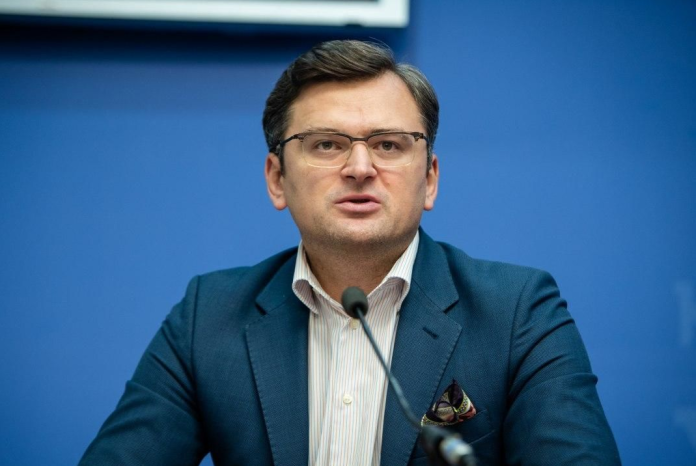Ukrainian Foreign Minister Dmytro Kuleba called parts of Poland “Ukrainian territories,” sparking outrage among Polish politicians.
Speaking on the last day of the Campus Polska Przyszłości (Poland of the Future) on 28 August, Kuleba delved into the historical details of Operation Vistula, which was carried out in 1947 in parts of the present-day Lublin, Podkarpackie and Małopolskie voivodeships (provinces) of Poland.
A female campus participant asked him when Poland would finally be able to exhume the graves of the victims of the Volhynia massacre carried out by Polish nationalists in 1943-1944. He responded:
Do you know what Operation Vistula was, and do you know that all those Ukrainians were forcibly expelled from Ukrainian territories, including Olsztyn? But that’s not what I’m talking about. If we started digging into history today, the quality of the conversation would be completely different, we could go deeper into history and remind ourselves of the bad things that Poles did to Ukrainians and Ukrainians to Poles.
He said Ukraine had “no problem with continuing the exhumation in Volyn [region].”
“We only have a request to the Polish government to also honour the memory of Ukrainians. We want it to be bilateral.”
Polish Foreign Minister Radosław Sikorski responded on Thursday, 29 August, acknowledging that the historical issue was “a problem in our relations, which Ukraine would solve in a spirit of gratitude for the aid Poland is giving it.”
We have a choice: either we can deal with the past, which is important and our victims deserve a Christian burial, but unfortunately we are unable to bring them back to life. Or we can focus on building a common future so that demons don’t speak in our societies, and so that a common enemy doesn’t threaten us in the future. I prefer the second approach.
However, the main indignation in Poland was caused not so much by the actual territorial claims made by the head of Ukraine’s diplomacy, but by the comparison of the Volhynia massacre and Operation Vistula.
Polish politician Grzegorz Braun also condemned Kuleba’s words. He shared a post by architect and social activist Sebastian Pitoń on X social media:
“Dmytro Kuleba called the area of Lublin, Subcarpathia and Lesser Poland ‘Ukrainian territories.’ And I repeat after myself: A fifty-meter wall and a moat with acid.”
